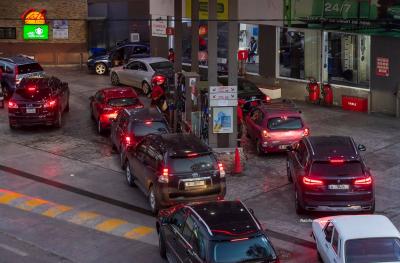The electronic newspaper Al-Anbaa reported that following the positive developments in relations with Gulf countries and the important stance of Prime Minister Najib Mikati, he arrived in Qatar, where he met with the Emir of the country and the Prime Minister, alongside a large number of Arab delegation leaders participating in the opening of the Qatari Business Forum. After his meeting with Qatari officials, Mikati announced that Lebanon constantly needs Arab support, hoping that all Arab countries would restore their normal relations with Lebanon, describing the situation as a passing summer cloud and expecting it to dissipate with his upcoming visits to Arab countries and the restoration of diplomatic relations between Lebanon and the Gulf, especially with Saudi Arabia.
Member of the Independent Middle Bloc, MP Ali Darwish, indicated in a conversation with "Al-Anbaa" that Mikati's visit to Qatar has several dimensions. Firstly, Qatar is one of the Gulf Cooperation Council countries, and there is now clarity about breaking the stagnation in relations with the Council, with a rush to mend the existing rift, and the visit will help with that. Secondly, the mere visit sends a clear message of support that increases Lebanon's chances of accelerating its exit from the crisis and discussing the process of assisting Lebanon. Thirdly, there is an anticipated visit by the Qatari foreign minister to Lebanon to discuss Lebanon's needs. Fourthly, this may pave the way for the restoration of relations between Lebanon and Gulf countries, especially Saudi Arabia, all contributing to mending the rift between Lebanon and the Gulf.
As the economic crisis and fuel crisis worsen, Darwish noted that the living crisis is amplifying amidst the global crisis linked to the clear developments in the Russian-Ukrainian war, which has led to rising oil prices. Lebanon, in turn, is suffering from issues related to opening credits and liquidity shortages due to global price increases and a scarcity of foreign currency liquidity, resulting in price hikes. He called on the Central Bank of Lebanon to have a plan for opening credits and for security agencies to play a role in preventing the crisis from worsening, and for the central bank to address the situations of stations that require payment for fuel in dollars.
For his part, Fadi Abu Shakra, a representative of the fuel distributors' syndicate, attributed the fuel crisis and the return of queues to the anxiety of station owners regarding what might happen during the meetings on Monday and Tuesday and how the Central Bank's decision will unfold, which promised to adopt the exchange rate based on the Sayrafa platform at 22,200 Lebanese pounds. He reiterated that the goods are available, and the only issue concerns the mechanism of the exchange rate.
Meanwhile, negotiations with the International Monetary Fund are ongoing, with anticipation for the visit of the Fund's mission head to Lebanon, which may last up to two weeks to complete negotiations and sign a preliminary agreement between Lebanon and the IMF. This is something Lebanon is banking on to start pulling itself out of its crisis and implement a recovery plan capable of alleviating its suffering.




